-
Courses

Courses
Choosing a course is one of the most important decisions you'll ever make! View our courses and see what our students and lecturers have to say about the courses you are interested in at the links below.
-
University Life

University Life
Each year more than 4,000 choose University of Galway as their University of choice. Find out what life at University of Galway is all about here.
-
About University of Galway

About University of Galway
Since 1845, University of Galway has been sharing the highest quality teaching and research with Ireland and the world. Find out what makes our University so special – from our distinguished history to the latest news and campus developments.
-
Colleges & Schools

Colleges & Schools
University of Galway has earned international recognition as a research-led university with a commitment to top quality teaching across a range of key areas of expertise.
-
Research & Innovation

Research & Innovation
University of Galway’s vibrant research community take on some of the most pressing challenges of our times.
-
Business & Industry

Guiding Breakthrough Research at University of Galway
We explore and facilitate commercial opportunities for the research community at University of Galway, as well as facilitating industry partnership.
-
Alumni & Friends

Alumni & Friends
There are 128,000 University of Galway alumni worldwide. Stay connected to your alumni community! Join our social networks and update your details online.
-
Community Engagement

Community Engagement
At University of Galway, we believe that the best learning takes place when you apply what you learn in a real world context. That's why many of our courses include work placements or community projects.
Arts, Humanities and Social Sciences Researchers
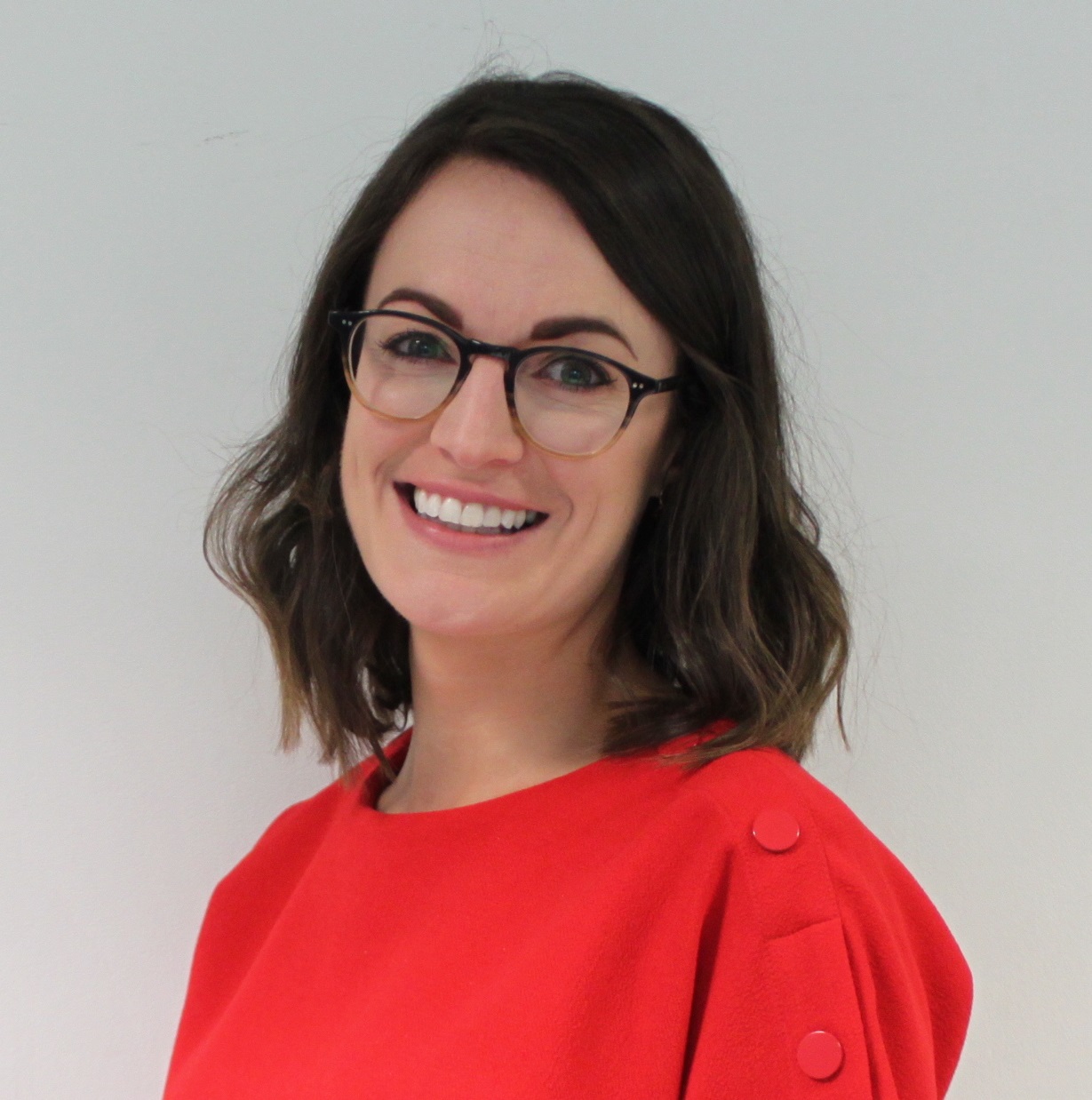
Dr Rachel Carey | Chief Scientist at Zinc
You only ever tend to hear people’s post-hoc narrative about their career, which inevitably sounds smoother and more coherent than it felt at the time. In reality, there’s usually a lot of experimentation, risk-taking and uncertainty - but the skills and resilience you develop as a researcher are hugely transferable, regardless of the path you end up taking
University of Galway Posts: PhD researcher
Years in University of Galway: 2010-2014
Research Discipline: Psychology
Project Title: The impact of threat appeals on risky driving behaviours
Tell us about your experience as a researcher at University of Galway
My PhD research focused on the impact of threat-based road safety messages on driver behaviour. I began it in October, 2010, working with Dr Kiran Sarma in the School of Psychology, supported by a bursary from the Road Safety Authority. I submitted my thesis in December, 2013. I had been interested in health-risk behaviour since my undergraduate degree, and I learned a lot by being able to immerse myself in the literature in this area. In developing an understanding of what underlies driver risk-taking, and how it can be changed, my project was mainly in the fields of health psychology and behavioural science. But, since transport is an interdisciplinary area, it also required some understanding of engineering, road infrastructure, education and communication campaigns. The research took the form of a meta-analysis and three experimental studies, which required methodological expertise in literature synthesis, psychophysiology and measurement of lab-based driving behaviour (via a home-made simulated driving task). In parallel to my PhD, I also had the opportunity to teach on undergraduate and postgraduate courses, and present at conferences. The teaching and training experience has been relevant and beneficial for every job I’ve had. Developing the self-management skills to balance time between different commitments was not easy – but provided a useful foundation for future work.
Tell us about your career journey since your time at University of Galway
The major decision point I initially faced was whether to further specialise in the area I had been working in, or to broaden out my expertise. In the summer of 2014, I was offered a postdoctoral position at the Centre for Behaviour Change at University College London. The post involved leading a new MRC-funded project, led by Prof Susan Michie and involving a stellar international team of Co-Investigators. During my time at UCL, I became involved in the Centre’s diverse portfolio of training and consulting work, and also had the opportunity to spend time at Columbia University in New York, and to attend a residential funding Sandpit in Washington DC. Towards the end of my time at UCL, I was developing a passion for working across traditional disciplinary and sectoral boundaries, and had become interested in exploring research roles outside of an academic setting.
In autumn 2016, I accepted a one-year post at Bupa, focused on developing a partnership with UCL, and leading a programme of work to embed behavioural science across the business. Then, in summer 2017, I was approached by a new organisation called Zinc, who were just starting out. Their plan was to create and run a venture-builder programme that would bring together a diverse cohort of entrepreneurs to tackle important social problems. I was curious about the world of early-stage startups, partly because it provided the opportunity to meaningfully shape the direction of something from scratch, and partly because – if you view the first few years of startup life as essentially a series of experiments – I thought it would provide fertile ground for new research opportunities. I joined Zinc full-time as Chief Scientist in September 2017. My role involves leading Zinc’s R&D activities, through a programme of work that is problem-led and interdisciplinary. Our approach to R&D involves translating existing research into new products and services, creating new applied research through science-rich ventures, and establishing collaborative partnerships with universities.
What advice would you give to current University of Galway researchers?
Regardless of the career path you go on, I’ve learned and benefitted the most, over the last few years, from working with people from completely different backgrounds. Working in interdisciplinary teams is often messy and complex, but it’s also where you can find fresh ways of thinking. For researchers who are interested in exploring non-academic career paths, there is an increasing number of research roles in a variety of sectors and settings – including with startups. The pace, variety, and opportunities for impact in these roles can be refreshing and rewarding. You only ever tend to hear people’s post-hoc narrative about their career, which inevitably sounds smoother and more coherent than it felt at the time. In reality, there’s usually a lot of experimentation, risk-taking and uncertainty - but the skills and resilience you develop as a researcher are hugely transferable, regardless of the path you end up taking.
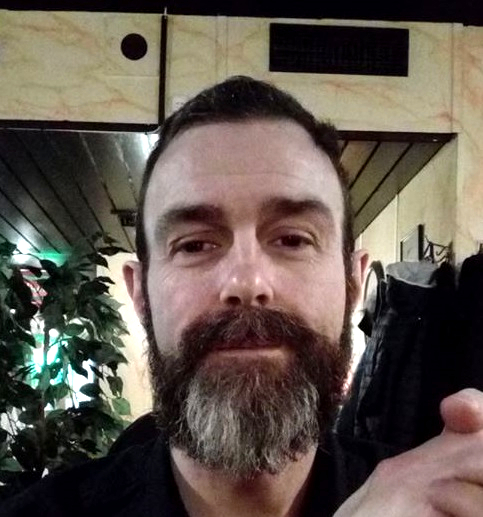
Dr James Casey | Equality Officer at ILMI
Fall in love with curiosity, with discovery and with asking questions – this is what drives research. But also enjoy the opportunity to challenge yourself. Try and embrace writing and let the process develop organically if possible, but don't be afraid to ask for help and advice.
University of Galway Posts: PhD researcher
Years in University of Galway: 2006-2011
Research Discipline: Critical Disability Studies; Film Studies
Project Title: Disability, deficiency and excess: a critical re-examination of the construction, production and representations of physical disability in contemporary European film
Tell us about your experience as a researcher at University of Galway
Becoming a researcher, and going through the process of research and discovery, gave me the opportunity to gain and, indeed sustain, a range of skills, practises and methodologies. These diverse skills have enabled me to progress further in my career both in academia and beyond. Understanding and critically thinking about data and scholarly work is something that can be translated and utilised across a range of professions. Being able to engage with relevant literature, and also to question it and communicate it to others in a clear and accessible manner, are skills that have been very useful to me ever since my time as a researcher.
Tell us about your career journey since your time at University of Galway
After I graduated and my teaching and research time at NUI Galway finished, I presented papers at several European conferences and also published several pieces of work. I worked as an editor and reviewer for several journals as well as teaching at various levels and giving occasional lectures on a variety of cultural topics. I gradually began to engage more in disability rights activism and I worked as an equality and communications consultant before taking up my current position with Independent Living Movement Ireland. I continue to engage with academia and stay active as a writer. My most recent contribution will be published in September 2020 by Brill.
What advice would you give to current University of Galway researchers?
Fall in love with curiosity, with discovery and with asking questions – this is what drives research. But also enjoy the opportunity to challenge yourself. Try and embrace writing and let the process develop organically if possible, but don't be afraid to ask for help and advice. Always keep going and never give up.
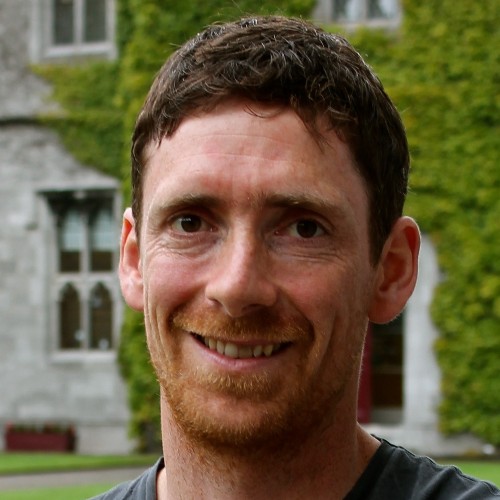
Dr Gary Goggins | Public Awareness Manager, LIFE IP Wild Atlantic Nature
Make the most of the opportunities that present themselves to you and seek to develop your own possibilities through networking and engagement with relevant people, organisations and institutions. Link up with people whose work you admire and learn from them.
University of Galway Posts: Senior Research Fellow, Project Manager, Research Associate, PhD researcher
Years in University of Galway: 2012-2021
Research Discipline: Environmental Sociology
Project Title: Public food consumption and sustainable food systems: exploring the role of large organisations
Tell us about your experience as a researcher at University of Galway
My experience as a researcher at University of Galway was largely positive. In the four years of my PhD I learned how to conduct independent problem-centred research using a range of different methods. I gained experience on how to structure and manage a research project from start to finish and developed my writing and reporting skills to a level where I could lead publications in high impact peer-review journals. I gained valuable experience in teaching and presenting at academic conferences and other events. Post PhD I worked on several transdisciplinary European projects where I learned how to effectively coordinate and manage a research team. I built relationships with local and national agencies and developed a good knowledge of policy processes at the national and EU level. I enhanced my research skills and developed strong international networks in different disciplines. All of these skills and experiences have been largely transferrable to my current role and have proved extremely useful to me in my career.
Tell us about your career journey since your time at University of Galway
In February 2021 I left University of Galway to take up the role of Public Awareness Manager with LIFE IP Wild Atlantic Nature. This is a 9-year EU-funded project coordinated by the Department of Housing, Local Government and Heritage with nine additional partners. The main aim of the project is conservation and restoration of blanket bog habitat in the northwest of Ireland, focusing on the Natura 2000 network. I work closely with farmers, landowners, government departments, state agencies and others to deliver the project objectives. The project offers a great opportunity to link research with practice and deliver social and environmental benefits in local communities. My role is varied and includes planning, coordination and implementation of project actions, public engagement and outreach, policy development, monitoring and evaluation. I am involved in several research and practice initiatives at the local, national and EU level. The highlight of my job is working directly with local communities and others to develop solutions to relevant issues related to nature conservation and rural development.
What advice would you give to current University of Galway researchers?
My advice to current University of Galway researchers is to make the most of the opportunities that present themselves to you and seek to develop your own possibilities through networking and engagement with relevant people, organisations and institutions. Link up with people whose work you admire and learn from them. If you find your niche, great, but if not, continue to evolve and enhance your experience. Above all, be flexible and adaptable to changing personal and social circumstances. We might not always recognise it, but as researchers we are in a very privileged position in society. We are highly educated with many transferrable skills. Academia is a very competitive environment in terms of obtaining research grants and secure employment, so I would encourage researchers to also look at opportunities outside of traditional academia, where there is lots of scope for applied research across all disciplines. Moreover, applying research knowledge and skills to practice is engaging, interesting, enjoyable and rewarding.
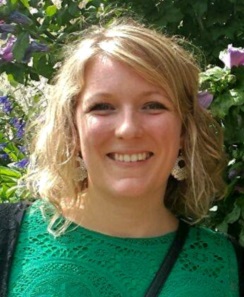
Dr Jeannine Jud | Conference Project Manager at Context
My strong work ethic and independent approach to tackling challenges honed during my PhD have stood to me in this new career path
University of Galway Posts: PhD researcher
Years in University of Galway: 2013-2017
Research Discipline: German Literature
Project Title: Writing Through the Trauma of her Past: Patterns of Repression and a Fragmented Sense of Self in the Literature of Christa Wolf
Tell us about your experience as a researcher at University of Galway
During the 4 years of my PhD at NUI Galway I learned how to work in a self-motivated and structured manner over a long period of time. Completing a PhD meant becoming an expert at multi-tasking: writing chapters, teaching, holding the position of webmaster and postgraduate representative of the German studies association of Ireland, writing and presenting papers and co-organising conferences. So many of the skills acquired during this time prepared me for a career as a Conference Project Manager for an interpreting and translation company. I now coordinate teams of interpreters and technicians for conferences all over Europe and my strong work ethic and independent approach to tackling challenges honed during my PhD have stood to me in this new career path.
Tell us about your career journey since your time at University of Galway
After I completed my PhD, I worked as an English teacher in Berlin for a year in a secondary school focusing on alternative teaching concepts. I have always loved teaching and wanted to move back to Berlin, where I spent my Erasmus year 10 years earlier. Homesick for Ireland, I decided to return after a year and spent two semesters working as a part-time teaching assistant with the German Department at NUI Galway, before getting a permanent job as a Conference Project Manager in the Conference Interpreting team at Context in Oranmore. With this job I get to combine my love for languages with my passion for traveling as I often get to travel to conferences all over Europe. I had no idea that so much of what I had been doing and had taken for granted as part of the PhD process translated into transferable skills in a career very much outside of an academic context.
What advice would you give to current University of Galway researchers?
Make sure not to focus too heavily on just the thesis. If you can co-organise a conference, become a postgraduate representative in a society or association, edit a newsletter or chair a reading group, all of these things will stand to you after the completion of your PhD. Don't sell yourself short and think outside the box! So many of the skills acquired during the process of completing a PhD are sought after in careers outside of academia.
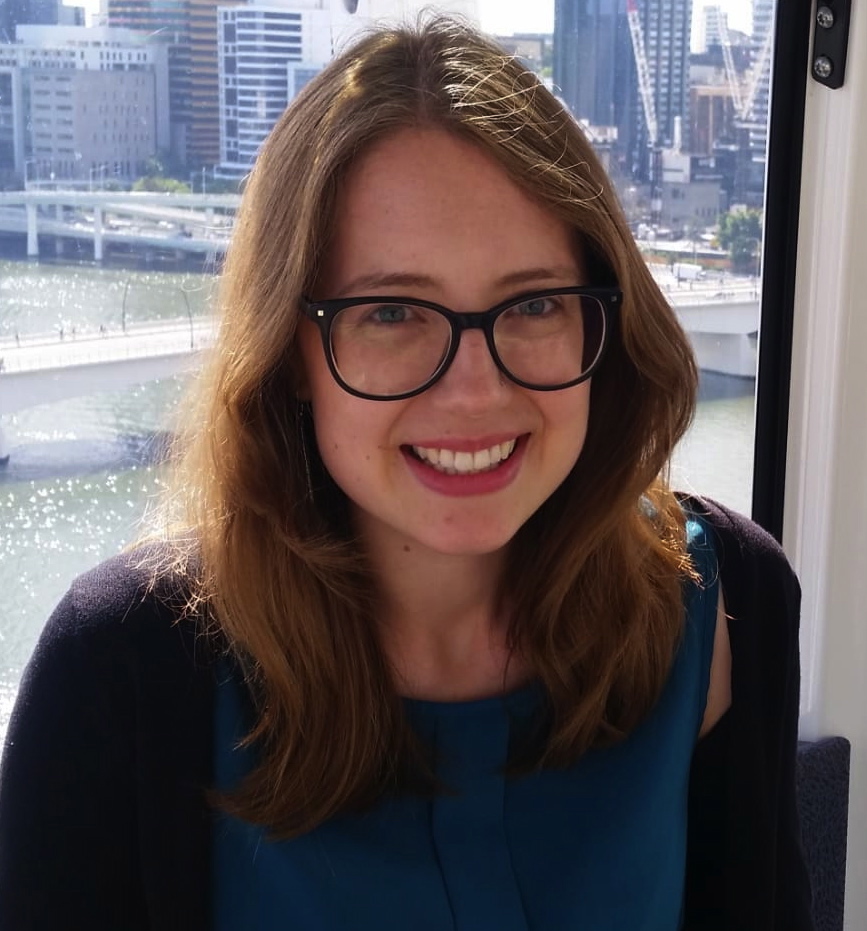
Dr Aoife Kervick | Policy and Research Analyst at RSA
Take advantage of the training courses and workshops available to you. Not only will this benefit you as a researcher, but it will provide you with good talking points for job applications and interviews
University of Galway Posts: PhD researcher; Research Associate
Years in University of Galway: 2012-2017
Research Discipline: Psychology
Project Title: An evaluation of smartphone driver support systems for young drivers; acceptance, efficacy and driver distraction
Tell us about your experience as a researcher at University of Galway
As a researcher at NUI Galway, I gained valuable experience working as part of a research group, and also working independently. In particular I really enjoyed setting up the driving simulator lab in the School of Psychology, which I used to conduct my PhD research. This was a significant undertaking and taught me a lot about planning and problem-solving. I also had a number of opportunities to develop my research, analysis and writing skills. My supervisor was very supportive of me availing of various workshops and training courses offered on, for example, different methods of statistical analysis to conducting systematic reviews. Gaining these skills has been invaluable, as I use them in my daily work. Although I found it difficult at first, I pushed myself to present my research at academic conferences to improve my presentation skills. Having built up this experience has really stood to me in my current job, as I regularly present at meetings and conferences. Similarly, taking on various teaching duties while at NUI Galway helped me to further develop my communication and presentation skills, and was a welcome break from sitting behind the desk at times. Co-supervising undergraduate research projects also helped to improve my skills in evaluating and providing feedback on research proposals and reports, which I regularly do in the course of my work.
Tell us about your career journey since your time at University of Galway
While finishing my PhD, I was offered a role as a research associate with the Risky and Extreme Behaviour Research Group. I continued to work part-time in this position at NUI Galway until I was awarded my current post of policy and research analyst with the RSA in early 2017. This role involves a variety of tasks, including analysing and reporting on road traffic collision data, overseeing commissioned research projects and contributing to road safety intervention design. This job has provided me with opportunities to represent the RSA at international road safety meetings, present our research at national and international conferences, engage with a variety of road safety stakeholders, and work with expert colleagues to directly inform road safety policy and practice in Ireland. I also oversee the RSA’s PhD bursary programme, through which my own PhD was funded, which has been an enjoyable ‘full circle’ experience.
What advice would you give to current University of Galway researchers?
I would recommend talking to your supervisor/PI so that you can plan your time at NUI Galway to incorporate additional experience for your CV, and take advantage of the training courses/workshops available to you. Not only will this benefit you as a researcher, but it will provide you with good talking points for job applications and interviews. Having evidence of strong communication and interpersonal skills (particularly a track record of presenting research, and supervising/co-supervising research projects) is of great value to potential employers from my experience, as is having worked with stakeholders/end-users. Last, and most importantly, try and maintain a balance between your work and social/personal life. It can be all too easy to prioritise work when in academia, but you also need to invest in your physical and mental health to be successful in any job.
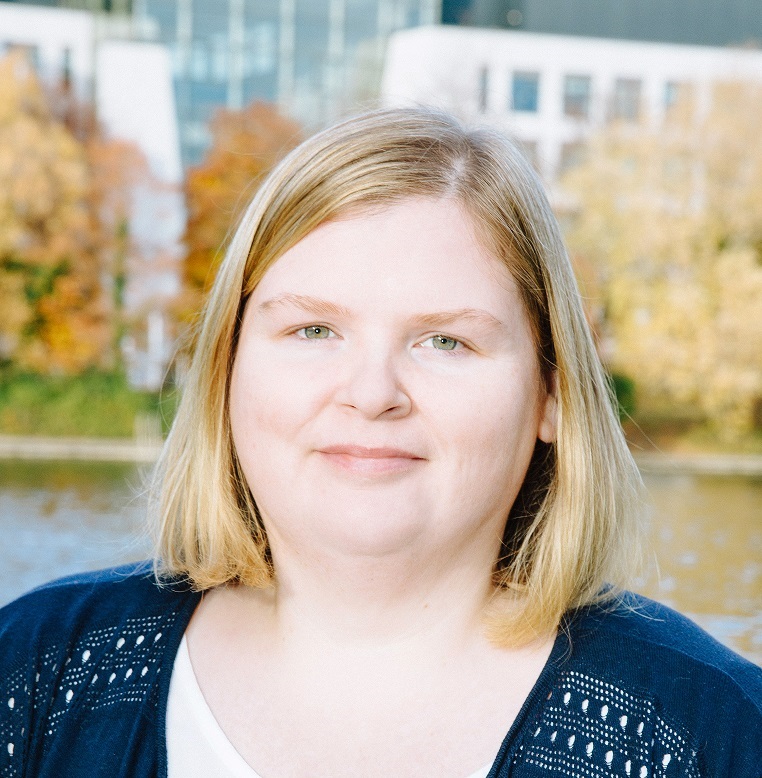
Dr Lisa Padden | Project Lead: University for All at UCD
Be open minded about where your career will take you. If you work hard and remain interested anything is possible.
University of Galway Posts: PhD researcher; Teaching assistant
Years in University of Galway: 2006-2012
Research Discipline: English
Project Title: Body & Soul: The Book of Margery Kempe
Tell us about your experience as a researcher at University of Galway
I thoroughly enjoyed my time in NUIG. I was awarded a Doctoral Teaching Fellowship for the duration of my programme allowing me to develop my skills as a researcher, teacher and academic. I very much felt a part of the discipline of English when I was a student in NUIG and was treated as a peer by the lecturers and other staff in the department. This helped me to grow in confidence in all aspects of my work and I felt supported throughout. For my career now all of the skills I developed are useful. I have written many articles and produced a number of publications here in UCD - my writing and research skills have been vital. Having completed the MA in Literature and Publishing in NIUG, I have also used my designing, proofreading and editing skills extensively. The most important skill I began developing in NUIG was that of an educator. Having had the opportunity to complete a module with CELT and then to teach a number of different types of classes has really been useful to me throughout my career.
Tell us about your career journey since your time at University of Galway
I took up the post of Learning Support Tutor in UCD in August 2012 directly after finishing in my role in NUIG. This position built on my teaching skills and allowed me to further my knowledge on inclusion in higher education. From this role I became Academic Skills Coordinator developing and teaching a range of academic skills workshops for students across the university, with a focus on our access students - students with disabilities, low-income students, mature students and part-time students. I then took up the post of Inclusive Education Coordinator where I began working with faculty and staff across UCD to ensure every aspect of the education experience in the university was inclusive to all of our students. I have just now taken up the post as Project Lead on our University for All initiative. Although UCD has a long tradition of educational access, the University for All initiative, developed by Dr Anna Kelly and I and endorsed by the UCD at every level, provides a more strategic institutional approach to weaving inclusion in to the fabric of the institution.
What advice would you give to current University of Galway researchers?
Be open minded about where your career will take you. If you work hard and remain interested anything is possible. My personal motto is always to say yes to every new and interesting opportunity as you never know what doors may open or where they path may lead. On a day-to-day level make sure you use this time to develop your digital skills, teaching skills, and your networks as much as possible. Most people hate networking but try to see it as an opportunity to learn about how other people work, what they do and figure out ways you might work together in the future.
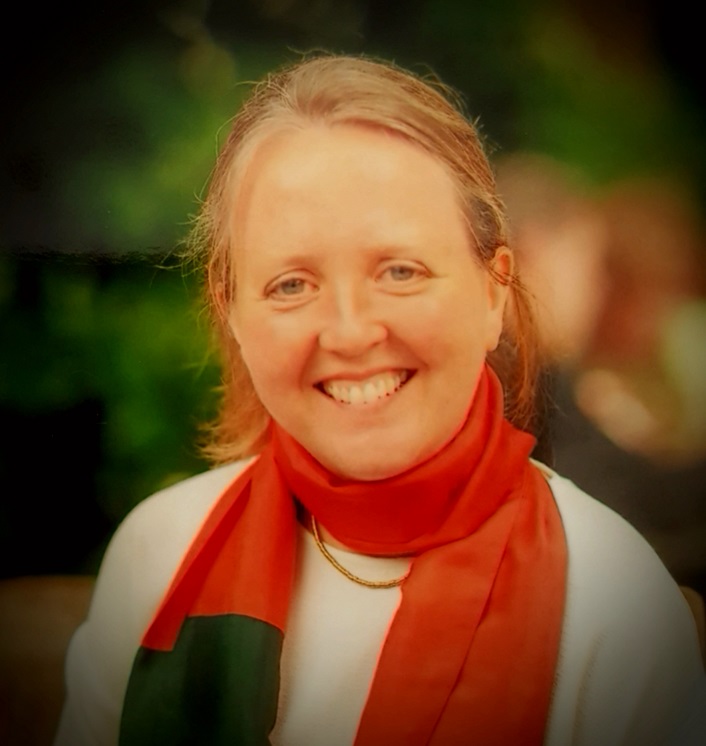
Dr Karen Vandevelde | HR Director, Antwerp University (Belgium)
If you love being a researcher, you will always be a researcher: you will approach challenges the way a researcher would. But be prepared to be more than just a researcher. There are many other professional identities out there that you haven't tried yet. Compare it to a new flavour of ice cream which might be even better than the one you thought was your favourite.
University of Galway Posts: PhD researcher; Teaching assistant; Postdoctoral researcher
Years in University of Galway: 1997-2003
Research Discipline: Irish Drama
Project Title: Outside the Abbey: the Irish National Theatres, 1897-1913
Tell us about your experience as a researcher at University of Galway
At the time I did my PhD in the English Department, there was no researcher development programme yet, nor were there any training opportunities for researchers and funding for a PhD was very limited. There were some advantages to this: learning to be self-sufficient (information retrieval, time management), enjoying great independence (making progress at your own pace, working autonomously), perseverance (archive research, writing, rewriting, and completing the PhD in 3.5 years) and being creative (editing the journal Ropes - Review of Postgraduate Studies; organising a conference; becoming involved in the Galway arts scene). However, the financial pressures were high, I had very little career guidance and applying for academic or other positions was very much a hit-and-miss process. In retrospect, however, the pressures I experienced in establishing my own post-PhD career and the experiences of having been a mobile researcher, have been a great driver for my career as a policy advisor and now as HR director in university.
Tell us about your career journey since your time at University of Galway
I came to Galway from Belgium and met my (English) husband in Ireland during my PhD years. We started our family in Ireland (Robin, born in Galway between my PhD and postdoc research year). However, both of us living on short-term teaching or research contracts did not feel right. We moved to Belgium in 2003 with the prospect of a long-term research position for me. This did not quite go as planned: 8 months pregnant with our second baby, I received news this had fallen through. I remember sending out lots of job applications and doing an interview when I was 9 days overdue... but baby nr 2 arrived safe and well (Esmee) and I got a part-time job in a teacher training college. Meanwhile, my husband was learning Dutch and applying for teaching or research jobs. The first couple of years were challenging: limited income, two small children, establishing a new life in a country which no longer felt familiar to me. I also missed being involved in research. And then things started to change in 2005: my husband's temporary teaching jobs resulted in a lecturing position and a new job as research policy advisor was advertised in Ghent University, where I had done my BA and MA. I was thrilled to get the job and was even more excited when I found out I was able to craft my own new role.
It was the start of 12 years of creative new projects such as: setting up the Ghent University Doctoral Schools, supporting researchers with new funding schemes, redesigning the research evaluation mechanism, setting up a research centre to monitor research careers on behalf of the Flemish government, becoming involved with European Commission policies on research careers etc. The link between research and policy making felt exciting and I found it more rewarding than publishing academic work. So little by little the small bits of research I was still doing on Irish theatre disappeared and I lost touch with my research topic entirely. I loved my job as a research policy advisor but after 12 years I felt the need to spread my wings further. There were no opportunities for me to grow at Ghent University so I explored other options. I started doing occasional free lance consultant work directly or indirectly for the European Commission. Each of these projects were related to researchers' careers, research evaluations, open science or HR policies and helped inform the Commission's science policies. It was exciting to connect with colleagues across Europe sharing the same interests.
I applied for a number of jobs which I didn't get, but then one job came up where I happened to be the right match: Antwerp University was looking for a new HR director. Since they had a great team of experts on the legal and national regulatory context, my expertise on researcher career development, evaluations and European policy was very welcome. In 2018, having been a research policy advisor with an interest in HR, I became an HR expert with an interest in research. The learning curve was steep, but it felt like being in the right place at the right time. I now lead a team of 40 wonderful colleagues who have taught me a lot in return and I enjoy the work that I do. I also continue being involved in European policy making. Somehow, many experiences from my earlier career (being a foreign researchers in a foreign country, experiencing the post-PhD dip, short-term contract hopping, understanding research policy,...) have enriched my views on what a university, a national government or the European government should do in order to make the careers of researchers more attractive and more secure. So, while my own career journey has taken some unexpected turns, in a way it feels like it is coming full circle again. And who knows what's next...
What advice would you give to current University of Galway researchers?
Love what you do. If you love being a researcher, you will always be a researcher: you will approach challenges the way a researcher would. But be prepared to be more than just a researcher. There are many other professional identities out there that you haven't tried yet. Compare it to a new flavour of ice cream which might be even better than the one you thought was your favourite. Learn. Grab every opportunity to learn new skills - be it through formal training, learning by doing, taking on new initiatives. And continue to learn for the rest of your life. The world changes much faster than you think.















